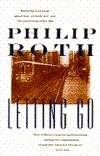
After the Fall
Book Description
A shattered marriage, a looming betrayal, and the relentless quest for redemption collide in the stark reality of 'After the Fall.' Set against the backdrop of a post-war America, emotions run high as personal demons and societal expectations intertwine. Characters wrestle with their desires and regrets, forging connections that are both fragile and intense. Each revelation pulls them deeper into a spiral of self-doubt and disillusionment. As they navigate the churning waters of love and loss, can they find healing in the chaos, or are they destined to repeat their mistakes? What happens when the past refuses to let go?
Quick Book Summary
"After the Fall" by Arthur Miller is a poignant and introspective play that delves into the turmoil of post-war America through the lens of personal trauma, guilt, and the search for redemption. The story follows Quentin, a lawyer haunted by his past actions and relationships, particularly his failed marriage to Maggie, a character inspired by Marilyn Monroe. As Quentin reflects on his life, he grapples with the burdens of memory, betrayal, and his inability to reconcile his ideals with his flaws. Set against broader themes of political disillusionment and social upheaval, the play examines how individuals are shaped—and haunted—by their history. Ultimately, "After the Fall" probes the possibility of self-forgiveness in a world where the past can never be fully escaped.
Summary of Key Ideas
Table of Contents
The Burden of Guilt and Memory
Quentin, the play’s central figure, serves as both narrator and participant, guiding the audience through a series of fragmented memories structured as a psychological journey. These scenes bleed between past and present, reflecting Quentin’s inner turmoil as he revisits formative relationships, most notably with his ex-wife, Maggie. The narrative structure mirrors Quentin’s struggle to reconcile the disparate pieces of his life, exposing how memory’s subjectivity complicates the search for personal truth and meaning.
The Complexity of Human Relationships
The dissolution of Quentin and Maggie’s marriage anchors the emotional core of the play. Maggie, a talented yet troubled woman loosely modeled after Marilyn Monroe, embodies vulnerability, fame, and fragility. Through their stormy relationship, Miller explores themes of intimacy, dependency, and betrayal. Quentin’s attempts to help Maggie are often tangled in his own need for redemption, yet his actions sometimes perpetuate her pain. Their dynamic exposes the difficulty of sustaining love amid personal flaws and unresolved trauma.
Redemption and Self-Forgiveness
Guilt pervades Quentin’s life, not only in his intimate relationships but also within his broader social context. The play is set in the shadow of World War II, the Holocaust, and the Red Scare, reflecting Miller’s own experiences with McCarthyism. Quentin’s memories reveal moral compromises, both through his legal work and his acceptance, then rejection, of political ideologies. These moments highlight how societal expectations and collective crises force individuals to confront their own capacities for complicity and silence.
Effects of Societal Pressures
Searching for redemption, Quentin reflects on whether true self-forgiveness is even possible. He confronts his failures and rationalizations, questioning the value of self-examination if it does not absolve the past. The play’s almost confessional tone underscores the difficulty of escaping recurring cycles of hurt—both inflicted and endured, personal and historical. It prompts reflection on how one’s past can become both a source of insight and a trap.
Cycles of Betrayal and Disillusionment
By the end of the play, Quentin has gained some measure of clarity about himself but not necessarily closure or peace. The unresolved nature of the narrative suggests that healing is a continual, often painful process, marked by accepting responsibility without the assurance of forgiveness. Through Quentin’s journey, Miller raises enduring questions about accountability, the limits of love, and the possibility of renewal after profound loss.
Download This Summary
Get a free PDF of this summary instantly — no email required.





